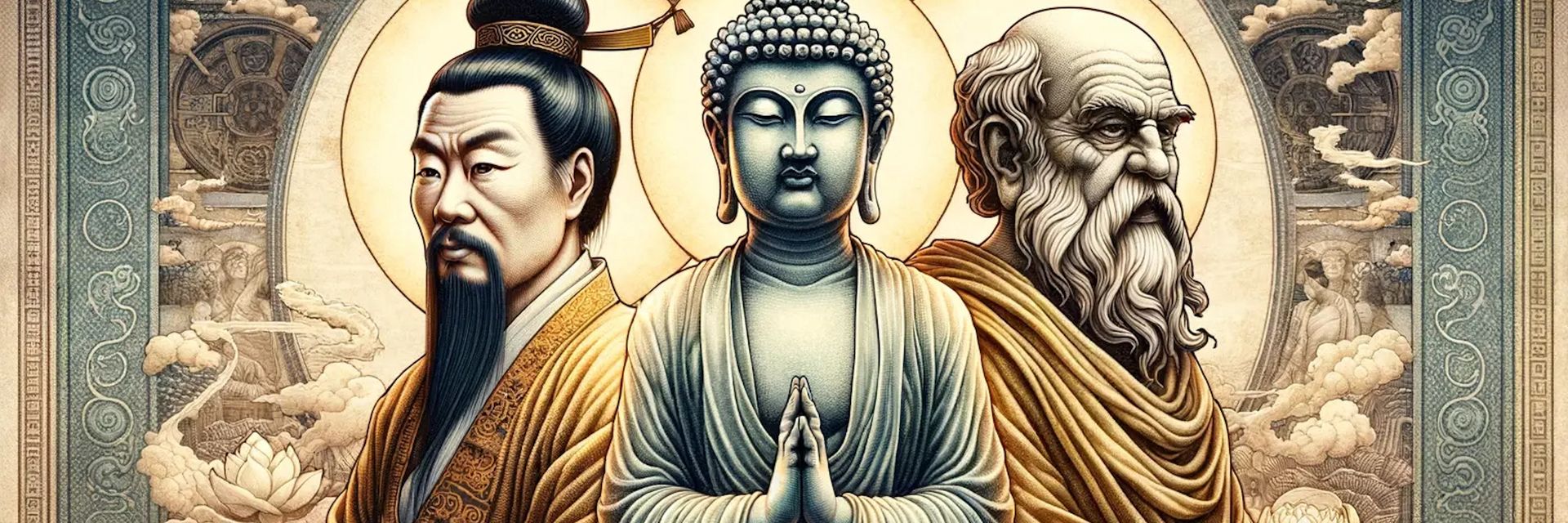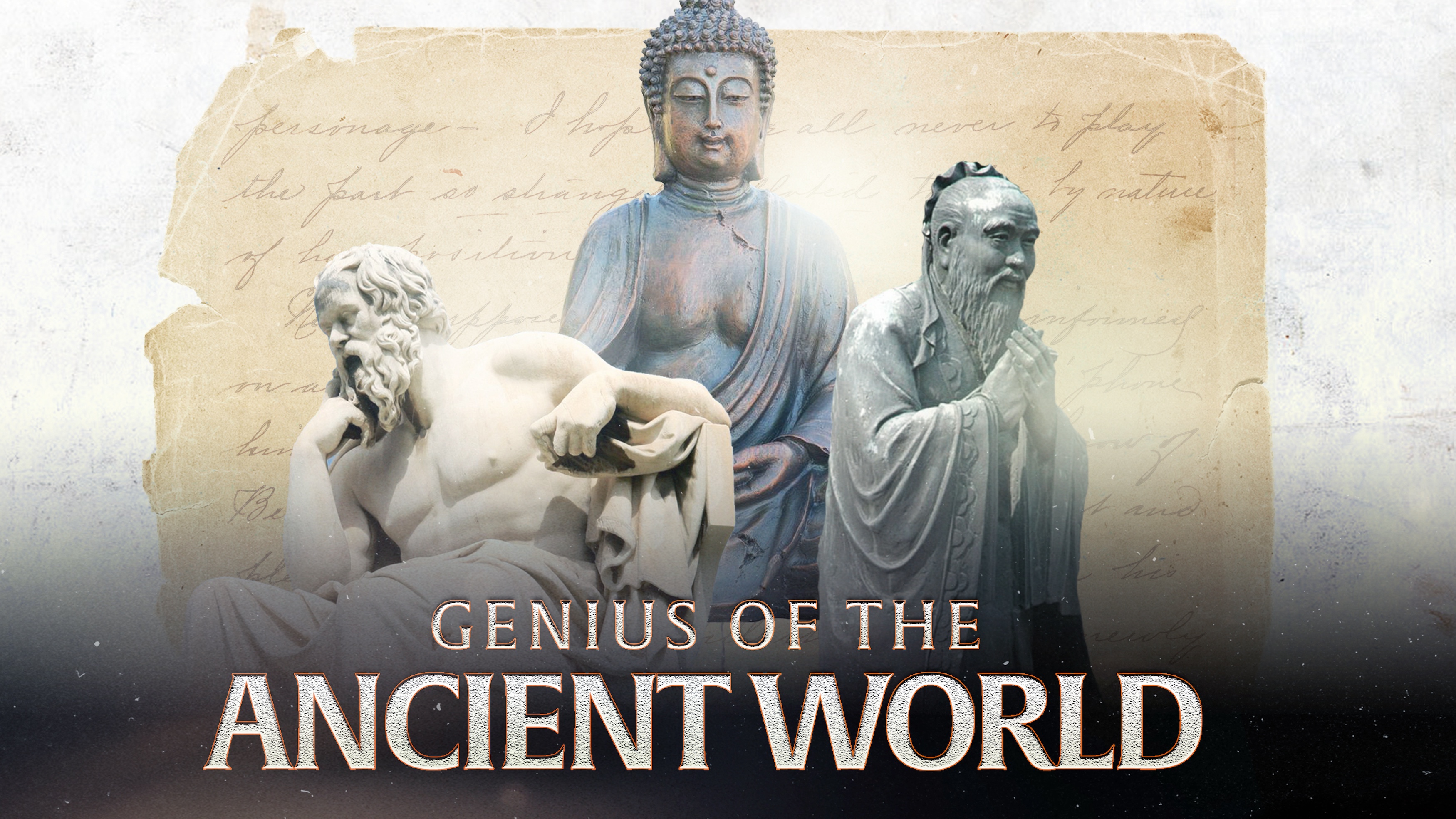Confucius, Socrates, and Buddha. All three were towering thinkers of the ancient world who wanted to know how to live. If we pause a moment to reflect on our daily routines, we notice that they’re filled with activities like work, laundry, appointments, making dinner … You get the idea. We are busy. We worry about the price of gas, food, rent. We are preoccupied. We have dreams, plans, goals. We fixate on the future. But how do we live? How do we know what it means to live well, to be a good person, to want the right things?
All three lived in roughly the same period, the Fifth century BCE, which saw remarkably coincidental intellectual, religious, and spiritual developments. Confucius (c. 551-479 BCE) hailed from Qufu City, China. Except for one military campaign, Socrates (469-399 BCE) never left Athens, Greece. And before he became Buddha (active c. 451 BCE), he was Siddhartha Gautama, the scion of a noble family in Lumbini, Nepal. More than 2,500 years later, these three men, none of whom left any writings, continue to enthrall people around the world. What makes them endlessly interesting, even if we can’t be absolutely sure they really existed? In a word, ideas.
Confucius, Socrates, and Buddha apparently spent the bulk of their lives devoted to thinking about these questions. What could be more important? After all, if you could know the best way to be, wouldn’t everything else in your life fall into place?
These three great philosophers are the focus of the MagellanTV series Genius of the Ancient World.
What we know about Confucius, Socrates, and Buddha as historical personages comes from secondary sources, predominantly their followers. (You could say this also about the most revered figures of the Abrahamic traditions – Moses, Jesus, and Mohammed.) The disciples of Confucius collected sayings and dialogues that became the Analects. Socrates’s follower Plato wrote dialogues that feature Socrates’s thought. In an oral tradition, Buddha’s disciples passed down sayings before they were compiled in written texts.
Ultimately, whether or not they actually existed may have little bearing on the value of the ideas attributed to them. One feature of human nature seems obvious, namely that we want to believe there is some truth about how to live, there really is some good we can achieve or become. Confucius, Socrates, and Buddha might very well have known what that is.
Confucius
“Learning without thought is labor lost; thought without learning is perilous,” Confucius asserts in the Analects, emphasizing the unity of knowledge and action in the context of community. Cultivating moral character – the process of becoming fully human – happens largely through engagement with one’s familial and social rituals and music. “If a man be without the virtues proper to humanity, what has he to do with the rites of propriety? If a man be without the virtues proper to humanity, what has he to do with music?” The harmony of music relates to principles that guide human conduct, and rituals relate to principles that order society. More specifically, Confucian harmony is not only a musical concept, but also a philosophical one, in that to be harmonious within oneself is a virtue.
Confucianism remains one of the most influential philosophies in China, and has spread to East Asian countries such as Japan, South Korea, and Taiwan.
For Confucius, learning to be good – to live a good life – is a sort of organic and ongoing process. As such, it demands continued attention and practice. We become what we do, but as the quote about learning instructs us, what we do is not thoughtless. We are not, after all, mere machines.
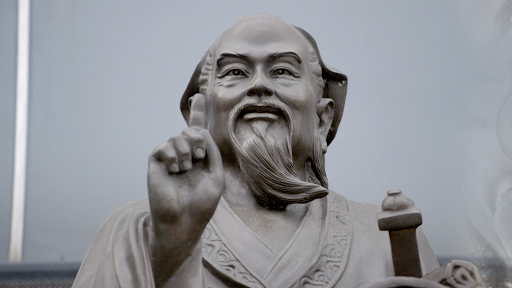
According to Confucian thought, our humanity (ren), righteousness (yi), ritual propriety (li), and wisdom (zhi) are innate, but they are not inevitable. Were we simply good, there would be no need to cultivate and attend to the good in ourselves through rituals and training. Hence, the importance of generating and sustaining the dynamic and mindful harmony among attitude, thought, word, and deed.
The Confucian good life is not lived apart from, but instead in relation to, the world, particularly the familial and social community and their traditions. It’s interesting to note that Socrates, the “gadfly” of Athens, proclaims a deep commitment to his city, yet his vision of truth often seems at odds with tradition. Moreover, while Confucius apparently embraced his role as a teacher, Socrates disavows the practice.
Socrates
“The unexamined life is not worth living,” Socrates famously declares in Plato's Apology. On trial for impiety and corrupting the youth, Socrates insists that nothing is more important than the relentless pursuit of moral knowledge. To exist is one thing. To live, another. To live well, according to Socrates, requires sustained, serious intellectual investigation. You cannot live courageously, justly, virtuously – you cannot be good – without knowing what good is. In short, ‘to know the good is to do the good.’
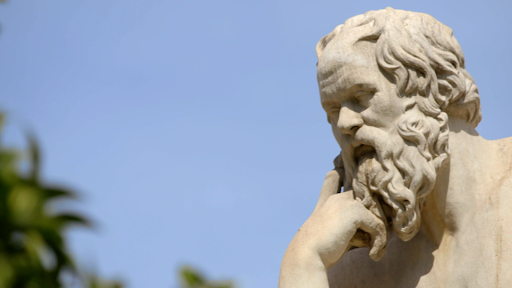
At first blush, Socrates’s view might seem strange. Don’t we often do something good accidentally, or fail to do something good, despite knowledge to the contrary? But Socrates argues that we don’t purposefully do what’s not good for us; we suppose that whatever actions we take are good for us somehow. So, when we err, we do so involuntarily; we mistake what is not good for what is good. In other words, failures to do what is good are instances of ignorance.
Consider choices you make each day. They don’t have to be momentous, but rather quotidian, like deciding to have a candy bar instead of an apple. Why did you choose the candy bar? Maybe you wanted the burst of energy from the sugar, in which case you believed you were doing something good. Maybe you eat two candy bars for twice the sugar high. Now suppose you come to regret the choice. An hour later, you’re dragging and have a mild headache.
Apart from Plato, first-hand sources of our knowledge of Socrates are limited to the comedic playwright Aristophanes and Plato’s lesser known contemporary (and fellow student of Socrates) Xenophon.
The same conditions apply when the moral stakes are higher. People do all sorts of things that reflect poor choices. People who commit murder, steal, and lie have to believe these actions are in their best interests, that these actions are, at bottom, good to do.
So, if we don’t have knowledge of “anything really beautiful and good,” we are left without a compass to guide our lives. We become vulnerable to false beliefs, and our thinking becomes disorganized. Ignorance, then, is a form of self-harm.
Buddha
“Life is dukkha,” Buddha asserts in his first talk after enlightenment. Indeed, the Pali word dukkha is central to Buddhist thought, but what is it? The word means sorrow, stress, pain, or suffering. Variations include contingency (or dependence) and impermanence. All are explicitly or implicitly negative. For someone born into immense privilege and luxury, who had every comfort one could want, why would Buddha emphasize life’s … unpleasantness?
We are told that young Siddhartha abandoned his princely life and all it entailed. Deeply affected by the various forms of suffering with which he was confronted, Siddhartha began a years-long spiritual journey that ended with enlightenment. He became known as Buddha, or “awakened one.”
Happening upon members of a religious order that relied on handouts, Buddha declares that neither asceticism nor gluttony is the right way. Asceticism, the extreme denial of any sensual pleasures, which the monks practiced, will not free you from pain. Gluttony, the extreme indulgence in sensual pleasures, which most people desire, will not cover pain. The middle way, on the contrary, is the Noble Eightfold Path that “gives vision and knowledge, and leads to peace, direct knowledge, awakening, and extinguishment.”
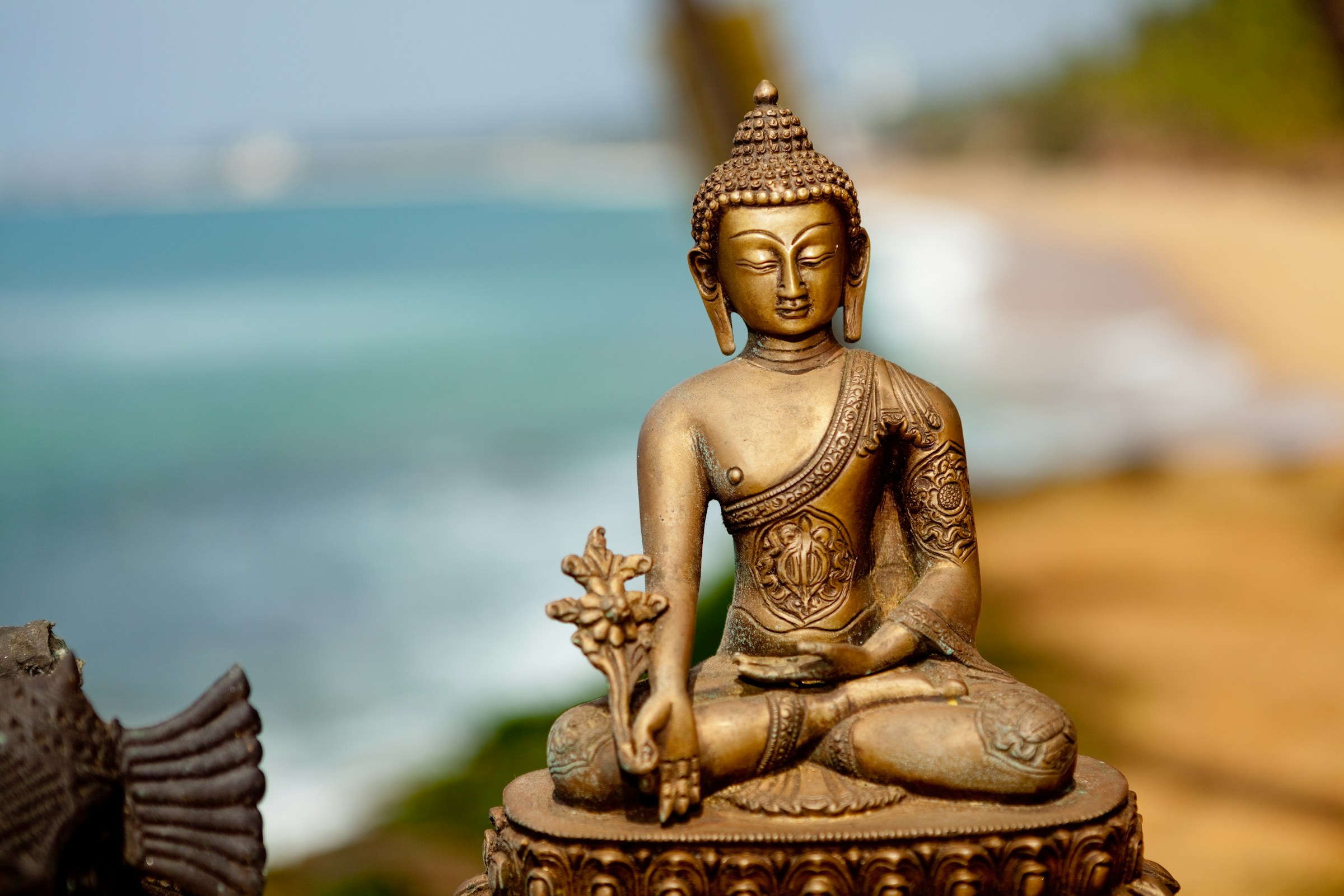
(Credit: Raimond Klevins, via Unsplash)
Buddha’s Eightfold Path consists of “right view, right thought, right speech, right action, right livelihood, right effort, right mindfulness, and right immersion.” To walk the path – to practice the truth about what is right – you must understand the Four Noble Truths. The first is the truth about life, which is suffering. The second truth is the origin of suffering, which is craving. The third truth is that there is a way to cease that suffering. The fourth is that way – the Eightfold Path.
Buddhism is practiced as a non-theistic religion, not only a philosophy.
The first truth is a basic feature of life, which is full of difficulties. Our bodies can be injured or diseased, and eventually they break down. Our feelings can be overwhelming and drive us to make decisions that lead to (more) unhappiness. Our perceptions can be distorted, and our consciousness can desire the wrong things, be ignorant, and attempt to fix or hold onto what is by nature changing.
The origin or cause of this pain is craving. We crave “sensual pleasures,” we crave life, and we crave death. The cessation of our suffering is, then, to eliminate the craving, to abandon attachments. We do this neither by abstaining nor gorging, but by “giving it away, letting it go.” To let go of craving, we practice the Eightfold Path.
Right view and action are associated with wisdom, while right speech, action, and living are associated with morality. Finally, right effort, mindfulness, and immersion are associated with concentration. The way for us to be in the world may be demanding, but as with any practice, you can develop proficiency and even excellence.
What We Inherited from Confucius, Socrates, and Buddha
Each of these thinkers offers their own form of therapy, cure, or consolation. For Confucius, active engagement with your community is crucial to cultivating and actualizing yourself as a fully realized human. For Socrates, a sincere and careful analysis of your moral beliefs will reveal your ignorance – and so also inspire you to learn the truth. Last, but not least, for Buddha, realizing the fundamental truth about life is the first step toward a practice of the middle way that leads away from dukkha, that is, suffering.
Knowledge is central to these three thinkers, since knowledge reveals, if not guarantees, the good life. There are interesting contrasts between these thinkers – for example, Confucius’s emphasis on virtues achieved within the social domain through ritual and Socrates’s rejection of tradition in favor of using reason to uncover the truth. But all three think there is harmony in living well, and goodness in knowing what living well means.
Ω
Mia Wood is a philosophy professor at Pierce College in Woodland Hills, California, and an adjunct instructor at the University of Rhode Island, Community College of Rhode Island, and Providence College. She is also a MagellanTV staff writer interested in the intersection of philosophy and everything else. She lives in Little Compton, Rhode Island.
Title Image credit: ChatGPT Dall-E image
